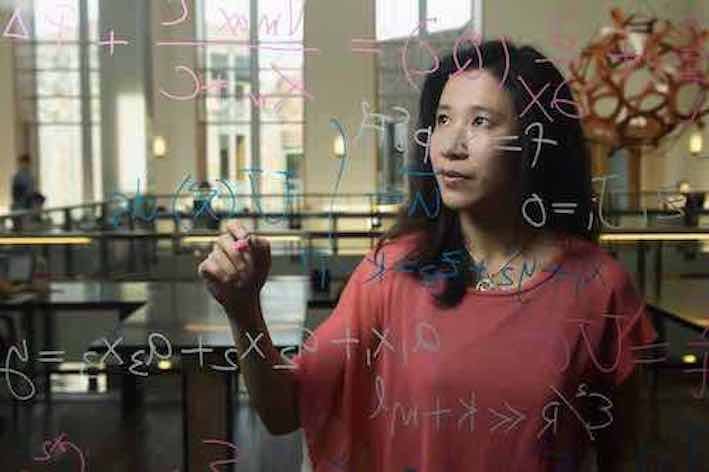Professor Anita Layton has been named the 2021 Krieger-Nelson Prize recipient for her exceptional contributions to mathematical research with applications ranging from fluid dynamics to biology and medicine. Professor Layton will receive her award and present a prize lecture during the Canadian Mathematical Society (CMS) Summer Meeting in June 2021.
The Krieger-Nelson Prize was inaugurated in 1995 by the CMS to recognize outstanding contributions in the area of mathematical research by a female mathematician.
“Congratulations to Anita on receiving this much-deserved prize from the Canadian Mathematical Society,” said Mark Giesbrecht, Dean of the University of Waterloo’s Faculty of Mathematics. “Anita is an outstanding applied mathematician whose research is broad, interdisciplinary, and having real-world impact.”

Professor Layton has built an impressive academic career with accomplishments throughout applied mathematics and the sciences. She holds the Canada 150 Research Chair in Mathematical Biology and Medicine and is a professor of Applied Mathematics, Computer Science, Pharmacy and Biology at Waterloo.
“I am incredibly honoured to be this year’s recipient of the Krieger-Nelson Prize,” Professor Layton said. “Relocating to Waterloo has been tremendously beneficial. I appreciate the University’s commitment to discovery, impact and innovation, and its effort in promoting equity, diversity and inclusion. A special shout out to my group of talented graduate students for motivating me to explore new research directions. Without you, very little would get done.”
Professor Layton has been recognized as a distinguished figure in the applied mathematics research at the interface of mathematical computation and biomedical sciences with a direct impact on clinical health care. She is the author of over 170 publications that include top journals in applied mathematics, physiology, and medicine.
The work by Professor Layton has inspired new experimental and clinical studies in the area of renal physiology and associated medical care. Her work has also highlighted the importance of sex differences in mathematical models for biological systems. Overall, she is an outstanding applied mathematician whose impact is vast and truly interdisciplinary.
In addition to groundbreaking work in mathematical biology, she has also published many impactful and well-cited studies in computational fluid dynamics, particularly computational methods for fluid-structure interaction problems. Here, a deformable object is immersed in an incompressible fluid so that the object moves with the fluid and exerts forces on it. These problems are notoriously hard to solve, both analytically and computationally. Dr. Layton has been at the forefront of studying and developing numerical methods that preserve the sharp fluid-boundary interface. For example, with then colleague Tom Beale, she was the first to present a rigorous analysis of the immersed interface method of Li and LeVeque.
In part, Professor Layton’s expertise on systems of nonlinear advection-diffusion equations coupled with algebraic equations has furnished her long-standing program of research on kidney function, and specifically on the kidney’s ability to concentrate salt and other products in the outflow. Here she has addressed important problems in physiology and medicine and corrected several misconceptions about kidney function that have plagued the textbooks for years. By working with renal physiologists, Professor Layton developed a model of fluid and solute exchange in the kidney that accounts for its concentrating ability. She developed a fast numerical solver that proved to be vital as it allowed for parameter sensitivity studies based on many repetitions of otherwise time-consuming and costly simulations.
Professor Layton’s work has inspired new experimental and clinical studies in the area of renal physiology and associated medical care. Her work has also highlighted the importance of sex differences in mathematical models for biological systems.